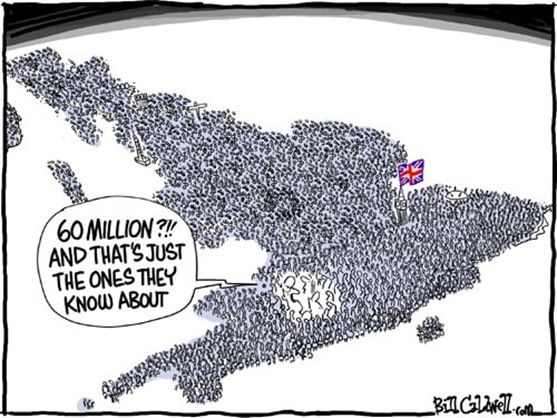Express
March 10, 2014

A LIB DEM plan to open up Britain’s borders to thousands more migrants was savaged last night.
The party has proposed a relaxation of rules to make it easier for foreigners and their families to come and live in the UK.
A “grandparents’ super visa” to help migrants bring in elderly relatives is being considered, along with a cut in the amount an immigrant must earn before their spouse can join them.
Critics say that alone could mean thousands of extra people entering the UK and Nick Clegg’s party was branded “out of touch with ordinary people” by a Tory MP.
The Lib Dem plans come amid growing Coalition tension over immigration and as current figures show net migration is up to 212,000. David Cameron wants to bring this number down to the “tens of thousands” by next year.
A document prepared for the party’s Spring conference in York this weekend states: “Liberal Democrats propose to ask the Migration Advisory Committee to reconsider the minimum income threshold for a spouse to come to the UK in light of the principle that a person with the means to support their family should be allowed to do so.”

It adds that the party proposes “the introduction of a ‘grandparents’ super visa’ that would allow grandparents to visit for a period of up to two years”.
Critics blasted Mr Clegg’s party for wanting to “re-open the door” to “uncontrolled immigration”.
Conservative MP Charlie Elphicke said: “This once again shows the Lib Dems are out of touch with the concerns of ordinary people.
“Since 2010 the Conservatives have taken tough measures to reverse Labour’s uncontrolled mass immigration and take back control of our borders. Now the Lib Dems want to re-open the door to uncontrolled immigration.”
Other plans for discussion in the policy document, Making Migration Work For Britain, suggest removing foreign students from any migration target.
This would, in effect increase the target for the number of migrants by over 150,000 people a year.
The Liberal Democrats would also allow these students to remain after their studies, despite the challenges faced by recent graduates to find work.
